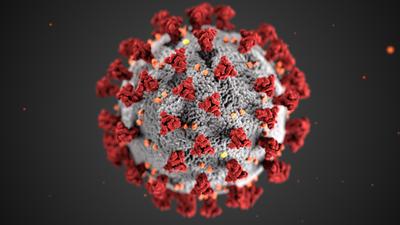Effect of Coronavirus on Physical Activity and Wellbeing

Health Sciences researcher Dr Danielle Lambrick is the University of Southampton lead on a study funded by the Institute for Life Sciences to understand the population effect of COVID-19 on people’s physical activity and wellbeing at different stages of the (respective) Governmental strategy to counteract this pandemic, both in the UK and globally.
The study is running in collaboration with five other UK institutions - University of Winchester (lead institution), University of Portsmouth, University of Gloucestershire, Swansea University, and Oxford Brookes University - as well as institutions in Ireland, Australia and New Zealand. During April and May 2020, the team of researchers developed and disseminated surveys via social and mass media outlets and received ~8500 responses. The study’s main findings indicate that:
1) people who had a negative change in their exercise behaviour between pre- and during COVID-19 restrictions reported poorer mental health and wellbeing;
2) females reported more positive changes in exercise intentions and behaviours during COVID-19 restrictions compared to males, and this was linked to more positive mental health and wellbeing;
3) younger adults (aged 18-29) reported more negative changes in exercise intentions and behaviours during COVID-19 restrictions compared to all other age groups, and this was linked to poorer mental health and wellbeing.
Although government guidance accounted for the need for people to get their ‘daily exercise’, the necessary physical distancing and self-isolation measures, and the closure of many facilities that promote physical activity such as gyms and sports clubs, impacted upon peoples ability to engage in their normal amounts and types of physical activity.
As physical activity is so strongly linked to the development and progression of many comorbid conditions, such as diabetes, hypertension and cardiovascular disease, it is of great importance to public health that we understand the impact of COVID-19 restrictions on peoples physical activity behaviour and gain a sense of the barriers and facilitators to their engagement, so that we might better support them in achieving and maintaining optimal health and wellbeing during our response to COVID-19 and if we were to encounter such events in the future.
Further analysis of the data showed that females engaged in more online exercise classes such as yoga and Pilates during the COVID-19 restrictions, while younger adults engaged in less sports and resistance exercise. This is likely linked to closures of sports centres and gyms during this time. This type of information may help us to devise tailored interventions that might encourage greater physical activity participation while individuals are continuing to physical distance, self-isolate, or indeed as they continue to ‘work from home’ for extended periods, and in doing so will positively impact upon peoples mental health and wellbeing during this challenging time.
The first wave of data collection is complete and these findings are currently in preparation for publication. The longitudinal design of this study means that subsequent survey responses will allow the researchers to investigate how physical activity behaviours change in response to the lessening of the COVID-19 restrictions across the countries surveyed, and/or if restrictions are tightened once more as a result of any increases in COVID-19 cases.
